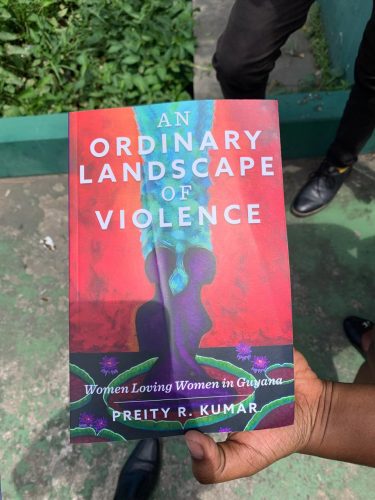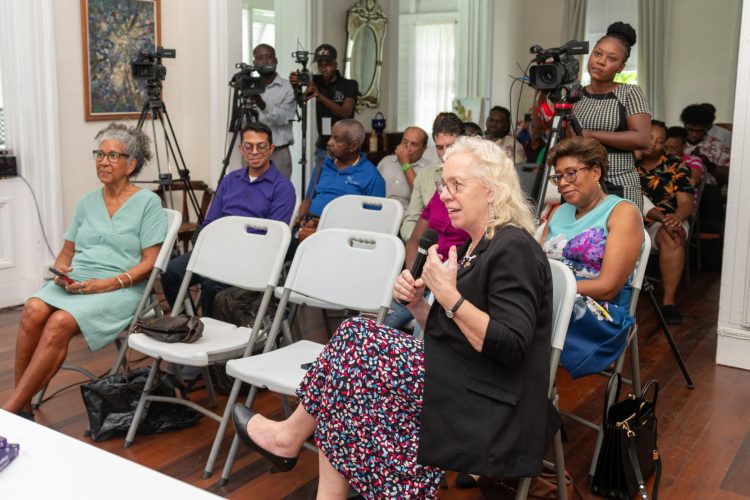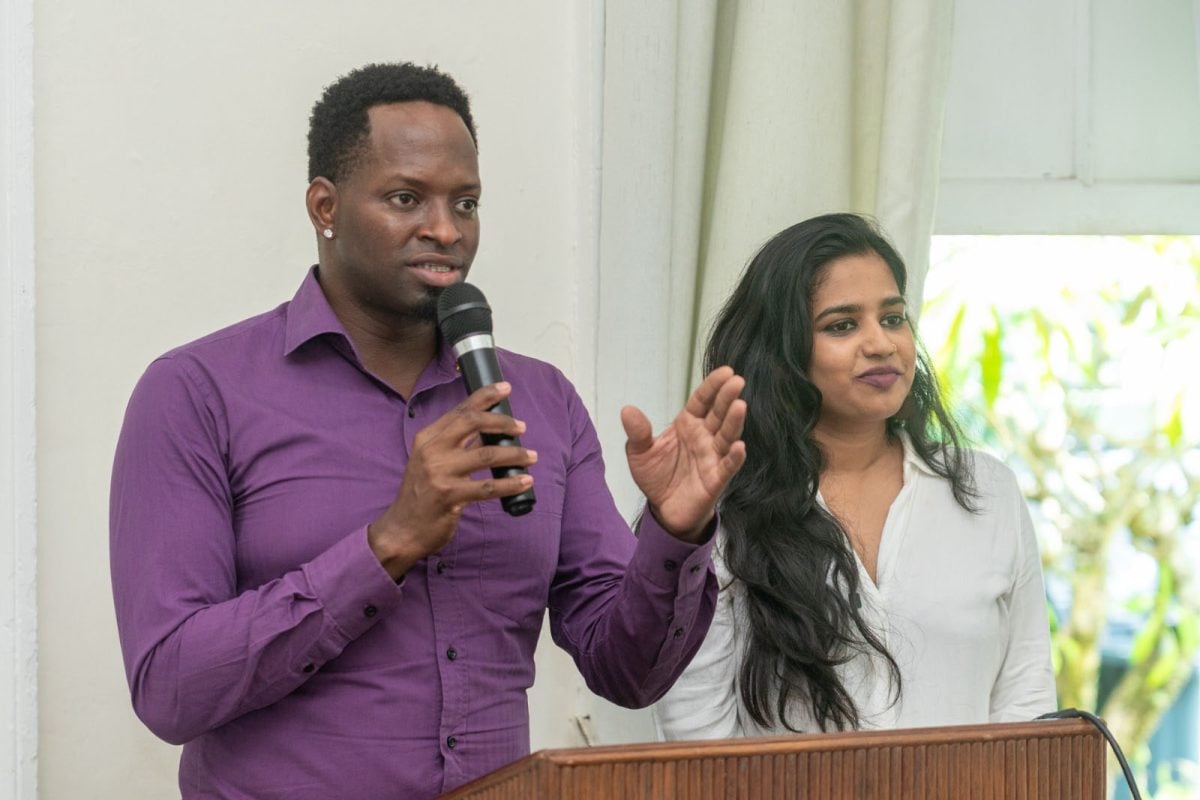– ‘Ordinary Landscape of Violence’ launched
The Society Against Sexual Orientation Discrimination (SASOD) will conduct a training and sensitisation series with lecturers and teachers from the University of Guyana and the Cyril Potter College of Education. This is expected to begin before the end of this year, according to Managing Director of SASOD Joel Simpson.
“We are starting first with a research project, but one of the activities we are wanting to do within the research project is sensitising teachers and educators, especially those at the faculty of education at UG and at CPCE,” Simpson said. “We plan to roll out a series of training on anti-gender violence, [and] restorative justice. The education stakeholders have the capacity to address these issues. The Minister of Education had reached out sometime back and spoken about sensitisation of the school counsellors. We haven’t been able to bring that into fruition yet but it signals there is a willingness or at least an awareness that there is a problem. We appreciate that this is a multi-stakeholder effort. While we project that there is something to start at the systemic level, we don’t have that access and we don’t have that control. A proposal from the research will be put to the ministry and to see if that will be accepted.”

He added that just last Tuesday a batch of police officers was trained on gender sexuality and policing.
The revelation was made yesterday at Moray House at Camp Street during Spirit Day observations. Spirit Day is observed on the third Thursday in October, to mark awareness against violence on LGBTQ youth.
Fittingly, at the observance, Dr Preity Kumar launched her book, “An Ordinary Landscape of Violence: Women Loving Women in Guyana”. Kumar had initially set out to gain insight into women loving women in Guyana. However her focus shifted after a neighbour met her one day and told her that the wife of the owner of the apartment where she was staying had vanished some years back. The wife’s remains were later discovered under the balcony of the apartment.
“My mother was reading the Stabroek News one day and she saw a story where the remains of a woman was discovered and she realised that the address in the story was mine and she said to me, ‘isn’t this your address?’ The police had raided my apartment, and had carried out a search, and beneath my balcony was the remains of the woman. The woman did not run to the bush… She tried to make a different life. She attempted. She had filed several reports, according to the newspaper, to leave her marriage and to get the legal custody of her son, so this project starts with her,” Kumar revealed.
With the new revelation she began to interview women living with women and telling their stories. The book encompasses several experiences.

“That’s how I shifted the focus to violence. I never set up the project to look at violence,” she said. “It came to me. This project was dedicated to her, and while I was busy doing my interviews, I realised a larger story is waiting to be told… So in this book, you will see me asking questions about what would it mean for us to think about violence beyond the physical, beyond the visible, beyond the spectacular? What would it mean to think of violence already embedded in the landscapes that were part of our spaces that were part of and already present in our relationship, rather than a similar event? And more importantly, I ask, how does violence continue after the act has ended?”
Kumar is an Assistant Professor in the Department of Gender and Women’s Studies at the University of Rhode Island. The book is the first ethnography to examine the lived experiences of women-loving women in Guyana, challenging conventional notions of violence, embodiment, and survival. Her research is widely published, appearing in the Journal of Indentureship and its Legacies; Journal of Lesbian Studies; Middle Atlantic Review of Latin American Studies; Interalia: A Journal of Queer Studies; Beyond Homophobia: Centering LGBT Experiences in the Anglophone Caribbean, and the Routledge Companion to Applied Qualitative Research in the Caribbean.
The book can be purchased on Amazon for US$29.95 or $6,248.93.





